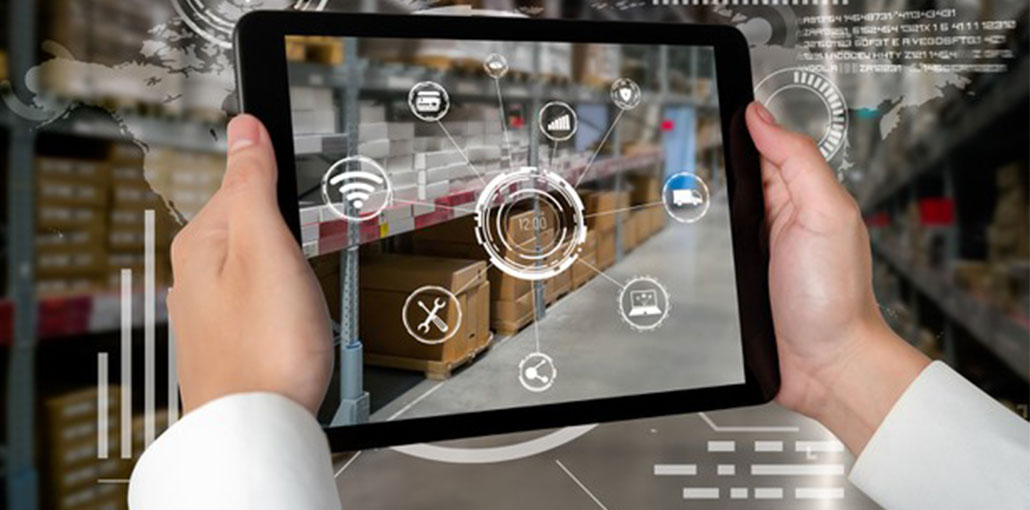The future of manufacturing is being influenced by AI. One survey found that 76% have deployed AI in their manufacturing operations or are developing AI systems for the near future.
The interaction between humans, machines, and other people is becoming a more prominent topic in manufacturing. Leading manufacturers integrate AI into their production processes whenever possible to automate repetitive tasks more efficiently. Automation allows them to monitor data and adjust their systems to increase productivity and efficiency. It is clear that AI technology has had a positive impact on the manufacturing industry. Among many other benefits, AI helps with robotic polishing.
Manufacturing companies still depend on manual workers but use them to solve complex problems and operate efficiently. AI does not reduce the need for workers. AI can be used to help manufacturers extract more value from their employees.
Augmented reality can be used to empower factories with unrivaled tracking and guidance capabilities, as well as the opportunity to gain a deeper understanding of their operations. This is one of the most significant advances in applied AI technology.
Experts have been able to develop new ways to interact with robots using AI algorithms thanks to their research on human-machine collaboration. These systems and processes are more natural than ever. because they can be seamlessly integrated into the work environment.
Also read: 18 Augmented Reality and Virtual Reality Companies in Healthcare
How augmented reality adds a deep layer to the work environment through the use of AI
This research shows that advanced AI automation technologies can be used by manufacturing companies to their advantage. Aircada Ar helps them to identify and solve problems. They use 3D sensors, motion cameras, and other means to detect minute data points using AI. This accuracy allows them to pinpoint the moments where inefficiencies occur in the production process. Experts can then find the most efficient solutions to optimize their operations.
These are just a few of the many benefits that AI-driven augmented realities can bring to manufacturing companies.
1. The ideal solution to training and upskilling challenges
Complex AI algorithms are used to help manufacturing companies train and upskill employees. No matter how big or small your company is, digital AR can be scaled to meet your specific needs. It is possible to create customized training programs for every worker in your factory as well as programs that are targeted at the enterprise level. With AI management tools, you can easily switch between programs to keep your training current and get the most from your investment in AR tools. Both beginners and experienced technicians will be able to receive effective training.
The benefit of standardized training is offered by digital work instructions. Although human trainers can deliver programs in different ways, digital instructions will always be the best because they don’t get sick and are not subject to emotional fluctuations. Your AI is therefore far more objective. You can connect all systems to ensure that information reaches its recipients on time and without lapses.
2. Digital Work Instructions
AR work instructions can also guide employees through standard processes. This reduces the chance of errors. Instead of having workers read through multiple actions simultaneously, an AR tool can project instructions onto the work surface. Workers will be able to access their guidance at the right time, step by step until they finish the task. As workers are required to bear lower cognitive loads, this reduces the time they spend working and makes it impossible for them to make mistakes.
Also read: 10 Benefits of ERP Software in the Manufacturing Industry
3. Variation in Product
Your work instructions only need to be written once. You can then add them to each AR system in the factory. This will make it easier for workers to adjust to different product variations faster and with fewer glitches. Barcode scanning is all you need to enable your AR software to connect to a PLC or to your enterprise MEC in order to locate and use the correct work instructions for your specific situation. Automation will become the future. Companies that aren’t ready for it will soon be obsolete. The future belongs only to those who can integrate all modern technologies into their production processes.
4. Quality Assurance
AR solutions guided by AI can include inspections that don’t slow down production. This can help you save time and money.
5. Ergonomics
AR overlays digital overlays onto your work surface. This allows you to increase efficiency. This is one of the greatest benefits of AI in manufacturing.










Leave a comment